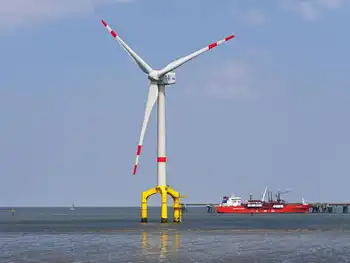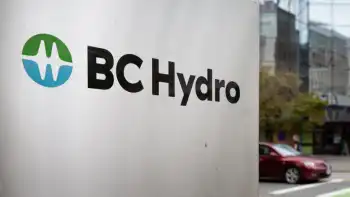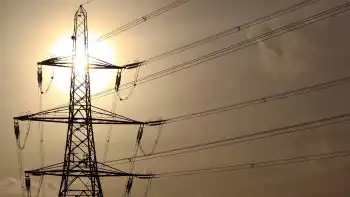Opponents vow to keep fighting energy plant
By Hartford Courant
NFPA 70b Training - Electrical Maintenance
Our customized live online or in‑person group training can be delivered to your staff at your location.

- Live Online
- 12 hours Instructor-led
- Group Training Available
They say the plant — the recent site of an FBI investigation into toxic dumping by alleged eco-terrorists — will harm the environment. They've asked the state Department of Environmental Protection to reconsider issuing permits for the project. If the DEP refuses, environmentalists say they'll take their battle to court.
Opponents say discarded wood and construction debris burned at the plant to make electricity would send toxins into the air and that a water-based cooling system planned for the plant would deplete the Quinebaug River.
"Years ago, the big joke was, 'What color is the river today?'" said Bob Noiseux, a member of the Friends of the Quinebaug River, about the way the river looked when Plainfield's textile mills used the river as a dumping ground.
"Now that the river is finally on the mend, this project will be a step backward for the river."
But Daniel Donovan, one of the developers of the proposed $160 million plant, said the project has already been through three years of vigorous vetting by the DEP. The activists' protests, threats of dumped toxins and a recent financial setback aren't stopping him from moving ahead with a project he says will help stop the state's dependence on such fossil fuels as oil, coal and natural gas.
"Hopefully, when everyone starts to move away from this misinformation about the project, people will start to understand what a great project this is not just for Connecticut but for the United States," Donovan said.
Last month, state DEP Commissioner Gina McCarthy approved permits for the project, including permits to construct and operate a solid waste facility, discharge water and withdraw water from the Quinebaug River. In her decision, McCarthy added a requirement that the plant retain the services of an independent "fuel quality management monitor" to make sure the plant stays in compliance with permit requirements.
An agency hearing officer, who reviewed a Friends of the Quinebaug River's petition against the plan, concluded in a Dec. 22, 2008, report that the project would "meet the applicable legal and regulatory standards."
The hearing officer said opponents of the plan failed to prove that the project by Plainfield Renewable Energy would cause "unreasonable pollution, impairment, or destruction of the air, water, or other natural resources of the state."
The power plant, a joint venture between Florida-based Decker Energy International Inc. and NuPower LLC of Connecticut, is slated for a 29-acre site in Plainfield. A pump house and water pipeline are also planned for a nearby site in Canterbury.
Donovan said most of the land — about the length of two football fields — will be used to store wood debris that currently gets trucked to landfills in Ohio and Pennsylvania. The proposed 37.5-megawatt plant could power about 30,000 homes, he said.
A former Superfund cleanup site, the land has since been remediated, Donovan said. A hazardous chemical dumped there earlier this month — purportedly by an environmental group opposed to the project — has been removed.
Deputy Chief State's Attorney Paul E. Murray said local, state and FBI investigators are working jointly on the dump probe, examining a letter sent to Plainfield Renewable Energy's Norwalk office in which activists claiming to be affiliated with Earth First! Journal out of Tucson, Ariz., said the group would do "everything within its power to stop" the plant, including dumping toxins at the site.
Authorities won't say what was dumped there but sources close to the investigation said its hazardous effects were minor. In an e-mail statement, Earth First! Journal in Tucson said it has nothing to do with the threat.
Supporters of wood-to-energy plants say such plants reduce the uses of fossil fuels, lower emissions and produce energy from a sustainable source. During the process, wood chips are loaded into a boiler and heated to make a gas. That gas is then ignited to create steam, which turns a turbine to generate electricity.
The Connecticut Clean Energy Fund, which promotes the development of clean energy throughout the state, loaned $500,000 to Plainfield Renewable Energy in the project's early stages, but when the firm sought an additional $2.5 million from the fund last month, the board declined to act on the request.
"It would have been the preferred option, but we're moving forward and we have other solutions," Donovan said about the lost funds.











